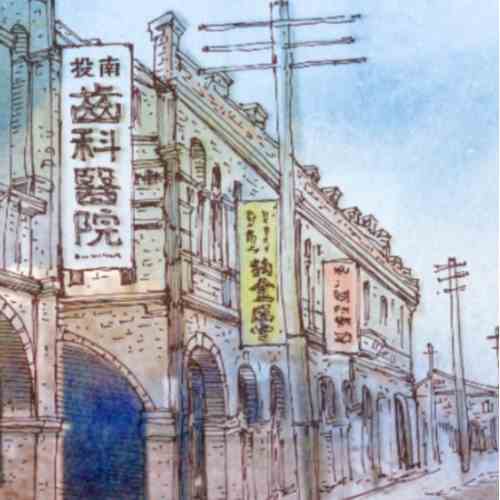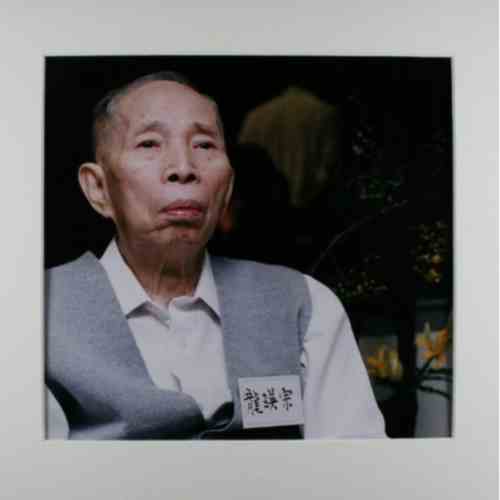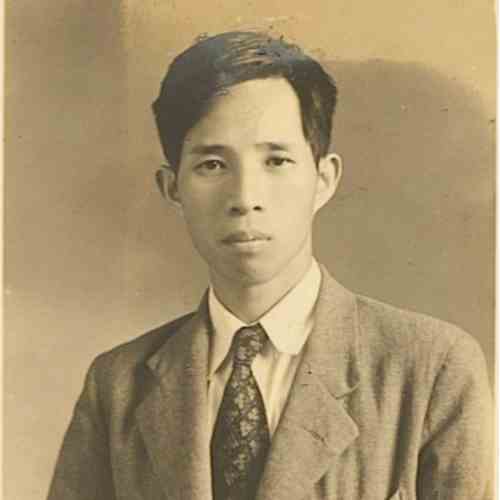Background
For “A Small Town Planted with Papaya Trees,” Lung received the Excellence Prize from the 9th Reformation Magazine Novel Awards in April 1937. Since Yang Lu (nominated for “Newspaper Man”) in 1934 and Lu He-juo (nominated for “Buffalo Cart”) in 1935, this was the third time a modern novelist received recognition from any arts and cultural magazine in Japan. At age 27, Lung suddenly transformed into a crucial writer in Taiwan from an ordinary bank clerk.
Lung once noted that “A Small Town Planted with Papaya Trees” was inspired by his experiences with the Nantou Branch of the Bank of Taiwan as a clerk. Since Reformation Novel Awards was a benchmark event in Japan’s literary circle, Lung figured that his readers would not know much about Taiwan’s land and people. Thus, he took a realistic approach to depict Taiwan people’s lives, particularly the ones of “small intellectuals” which he was familiar with. As Yeh Shih-tao once commented, “Lung's thoughts were fundamentally revolting, rebellious, and forward-looking. But in real life, he was forced to reconcile, step back and even withdraw. The desperate and heartbroken protagonists are personifications of the writer himself.”
Story
“A Small Town Planted with Papaya Trees” is about a “small intellectual” who struggled to build a life on a colonized land. Ugly, cruel reality slowly pushed the protagonist into an abyss, as he tried to forget his broken dreams through drinking. The novel’s protagonist, Chen You-san, was initially an active young man seeking a better life. His father hoped that he could improve the family’s finances, since he had a high school diploma. However, after graduation, Chen You-san found no jobs. After staying at home, doing nothing for four to five years, in one recruitment event, he was finally accepted as an accounting assistant. Taking his first-ever job, Chen You-san was full of hope. He decided to pass the government’s general administrative officers’ exam in one year and became a lawyer in ten years. Chen believed that with much hard work he would definitely climb up the ladder of a good life.
However, he found out that his colleagues, supervisors and friends all lived a hopeless, gloomy life. Some paralyzed themselves with alcohol and women, because they felt so aimless and mistreated in life. One even said, “Were it not for bar girls, I would have lost all hope in this world. At least they saved me from despair.” A high school classmate laughed at Chen You-san who was devoted to preparing for exams, calling him “poor bold Don Quijote.” The classmate even told him, “Let dogs eat knowledge. Knowledge will make your life miserable. No matter how much more knowledge you acquire, in reality, knowledge is a shackle against happiness.” Hearing this, Chen You-san started to question his own worth, but insisted that studying was a unique and meaningful thing to do. Not before long, Chen You-san heard more criticism against him. People said that instead of getting a learned person, they would rather find someone who was practical and was fit for the job. Chen You-san was angry upon learning the comments; he felt spiritually smashed.
Later, he fell in love with Tsui-er, daughter of colleague Lin Hsin-nan. This gave him hope in life – only for a short time. He proposed to marry Tsui-er but was rejected by the Lin family. Tsui-er was “sold” to a wealthy family in a neighboring village through marriage so as to improve her birth family’s finances. At this point, Chen You-san broke down completely. He drank and idled around all day. After a year working in a small town, he had lost all incentives to live a better life.
Discussions
In the history of literature in Taiwan, “A Small Town Planted with Papaya Trees” marks a pivotal change in themes and expressions of new Taiwanese literature. Before this novel was published, most of the works in this field were about criticism against a Feudalist society and oppressions from the colonial government. “A Small Town Planted with Papaya Trees” brings up a much subtler motif: the immense despair and an unstoppable fall of “small intellectuals” under a colonial rule, as well as the dark future they face.
“A Small Town Planted with Papaya Trees” depicts a collective break of the dreams of youths. Their worries were based on a dire fact that reality did not allow them to achieve high goals. From the views of the colonists, the youths realized that the islanders were belittled. These young people struggled to gain a higher social status, yet they found nothing which they could leverage power on. The harder they tried, the more trapped in despair they were. All efforts would eventually become in vain.
“Oh, let dogs eat knowledge. Knowledge will make your life miserable. No matter how much more knowledge you acquire, in reality, knowledge is a shackle against happiness. Besides, in a countryside place like this, what can you possibly do to prepare for the lawyers’ exam?” - “A Small Town Planted with Papaya Trees,” Complete Works of Lung Ying-tsung, Vol. 1, Novels (1), p.27.
The story noted that marriage was considered a monetary trade-off at the time. Women were sacrificed as the minorities of the oppressed, having no choices at all. Other than revealing women’s tragic fate, Lung Ying-tsung used this to suggest Taiwanese people’s dire circumstances.
“My daughter is truly unlucky when I think of it. But she must sacrifice for the rest of the family. I must sell her at a higher price. Thankfully, she has a gorgeous face. A rich family from a neighboring village proposed marriage previously, and we are in discussions now. You are young and full of hope. You can marry a woman who is many times better than my daughter. So, please consider all this as merely a bad dream and let things go.” - “A Small Town Planted with Papaya Trees,” Complete Works of Lung Ying-tsung, Vol. 1, Novels (1), p.44.
In one interview, Lung Ying-tsung noted that he wrote "A Small Town Planted with Papaya Trees" to give a truthful depiction of the island’s high school-graduate intellectuals, as well as the social issues and economic conditions of the time. Lung Ying-tsung depicted the complicated, even contradicting feelings of the “small intellectuals” from an observer’s view. Their ambition was relentlessly devoured by political environs, and their feistiness was lost bit by bit. Eventually, they gave up the truths they once believed in.
“On one Sunday morning, Chen You-san initiated a conversation. “How do you feel today?” He said. The two naturally started to talk. “Recently, you don’t seem to like studying anymore?” “Yeah, I just can’t gather up.” Chen You-san replied, awkwardly. “The air of the town is terrifying. It smells like rotten fruits. Young people seem trapped in a swamp of despair.” - “A Small Town Planted with Papaya Trees,” Complete Works of Lung Ying-tsung, Vol. 1, Novels (1), p.42.
Do you still remember that in Kano, a film, lecturer Hamana taught students how to grow big and sweet papayas? Papayas are symbols of fighting against all odds for the young baseball players. While the method for growing papaya trees lacks scientific evidence, it is a highlight of the film. However, the papayas in “A Small Town Planted with Papaya Trees” feel entirely different from the ones in Kano. They carry a rotten odor rather than one that’s fresh and sweet. This indicates that the island’s youths felt all alone and hopeless about the future. Today, the sense of dark reality resulting from financial difficulties can still be felt by young people. This proves that “A Small Town Planted with Papaya Trees” is a timeless literary piece which resonates with readers across generations.
“In the park, tropical trees grew up and tall. Once sitting on a stool, one could feel forest-like silence swirling near. Behind the stools was thick darkness stemming from oak trees. The little roads by one’s feet looked pale and crooked; they seemed swallowed by the dark at their ends. Beside the meadow in the front, some papaya trees quietly bathed themselves in the light of the arch-shaped Moon. The thin shadows of the trees were cast upon the ground.” - “A Small Town Planted with Papaya Trees,” Complete Works of Lung Ying-tsung, Vol.1, Novels (1), p.9.
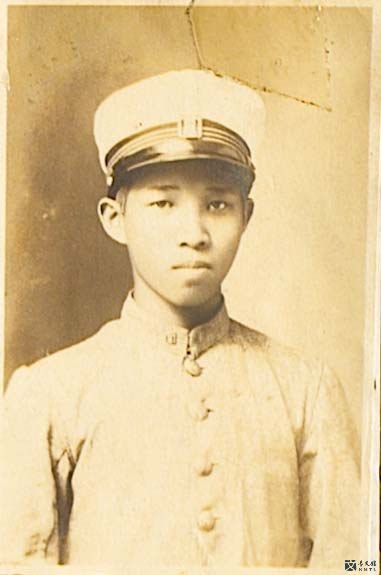
⚈ Lung Ying-tsung graduated from Beipu Public Elementary School in 1927. While at school, he borrowed a book of essays by Genjiro Yoshida from Peng Rui-lu, a classmate who was admitted to the Taipei Teachers’ College. (Provided by Liu Shu-yuan)
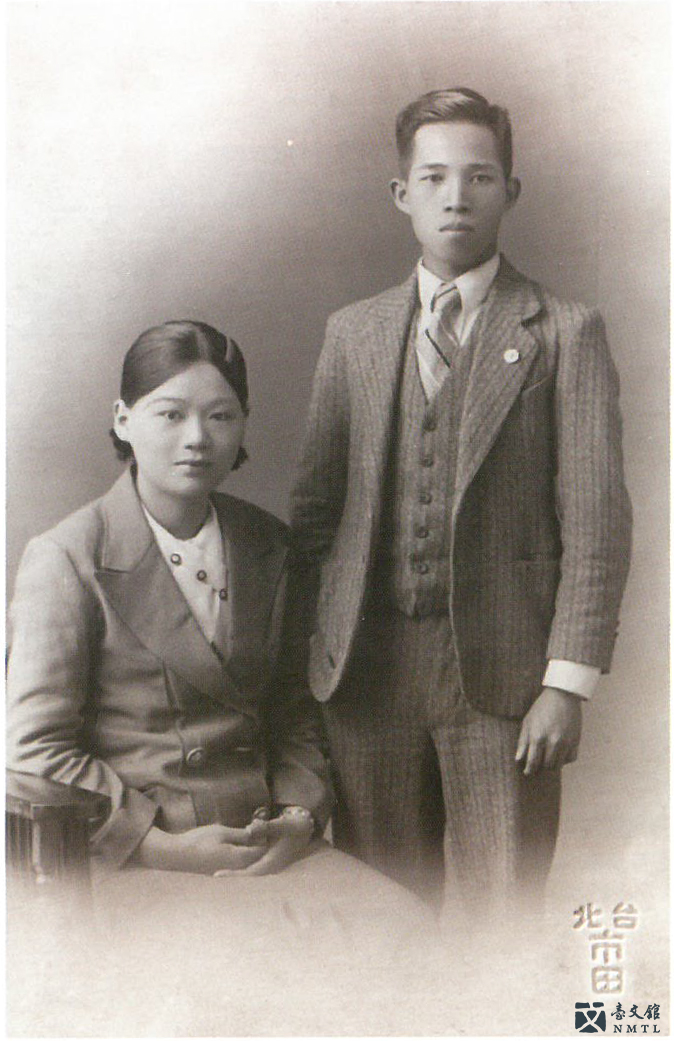
⚈ Wedding photo of Lung Ying-tsung and Li Nai. Lung Ying-tsung married Li Nai of Qionglin Village on March 20, 1935. (From the Japanese version of Volume I of The Complete Works of Lung Ying-Tsung)
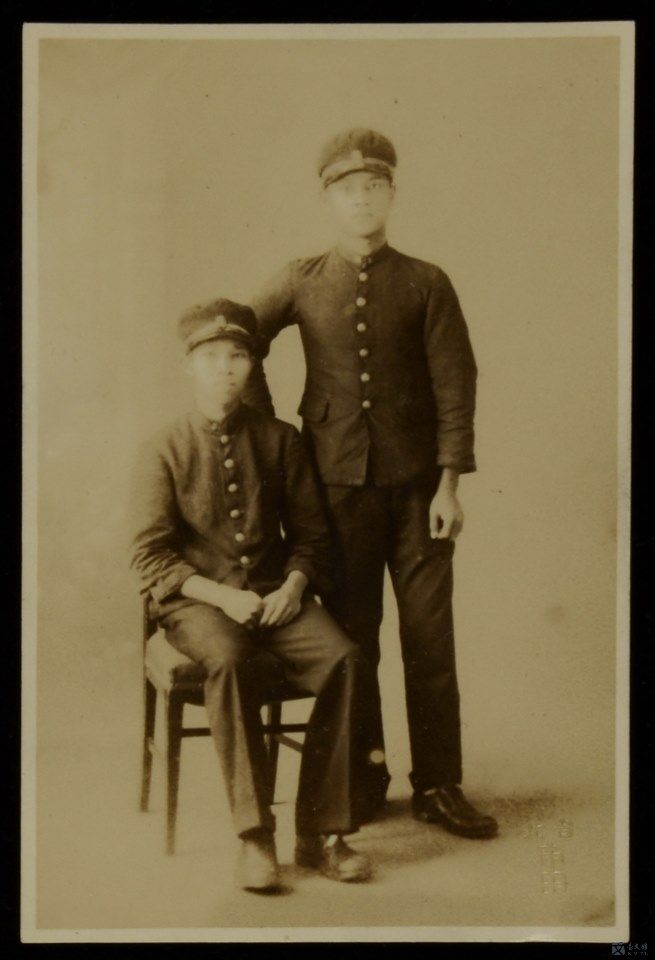
⚈ Photo of Lung Ying-tsung and his classmates during student years. (Provided by Lung Ying-tsung)

⚈ Lonesome Silverfish was published by Shengxing Publishing in 1943. It was the writer’s first book of reviews. (Provided by Wang Ming-chuan)
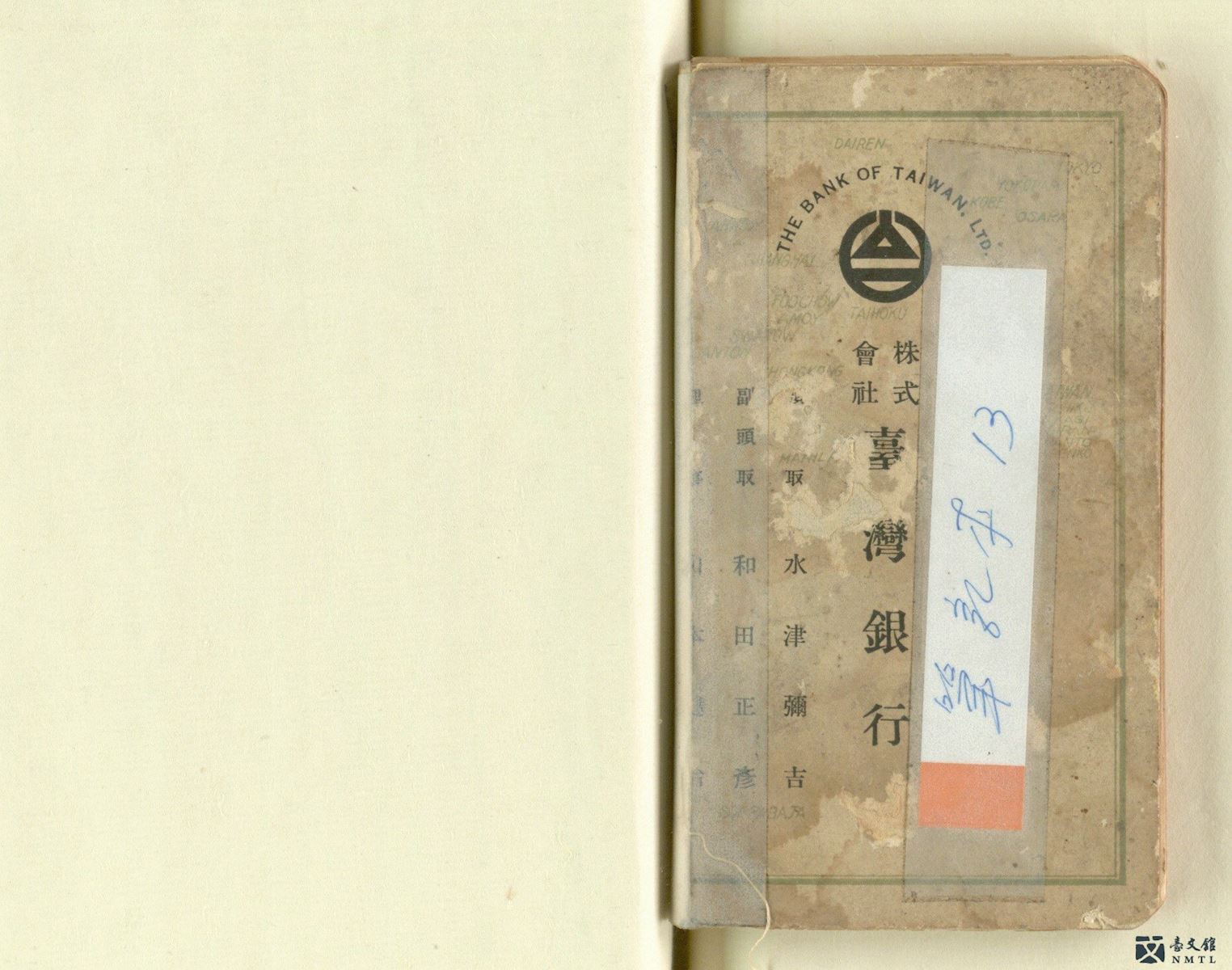
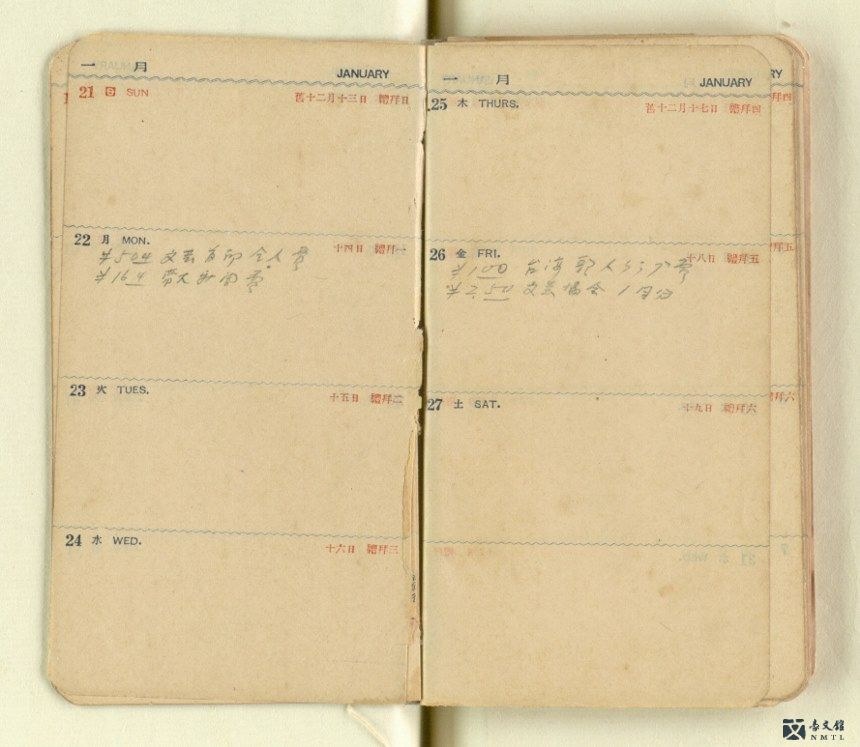
⚈ Notes by Lung Ying-tsung: Notebook 13. Lung Ying-tsung was still a clerk in the 15th year of Showa (1940) at the Taipei Headquarters of the Bank of Taiwan. This is a bank notebook from that time. Mostly daily-life memos were written in it, such as vegetable names and depictions of plants. Judging from this, the notebook might have helped Lung Ying-tsung to describe Taiwan’s nature in fine detail. (Provided by Lung Ying-tsung)
